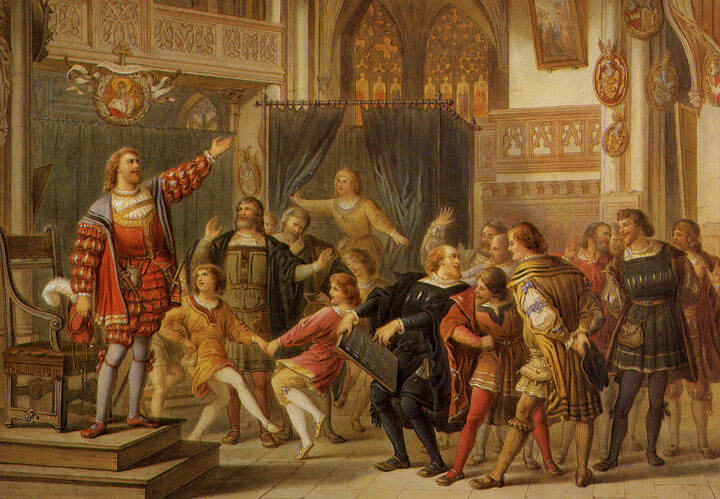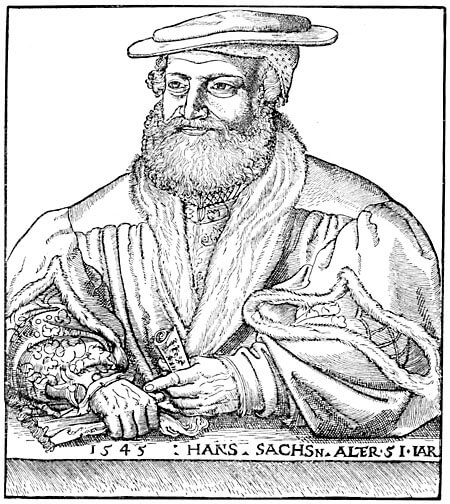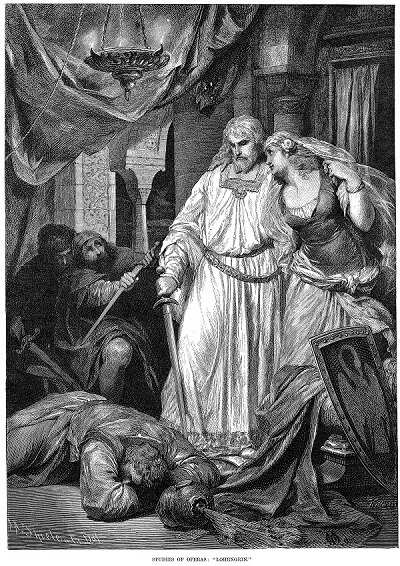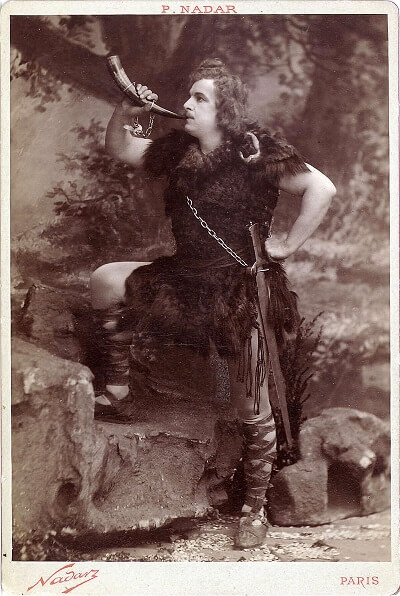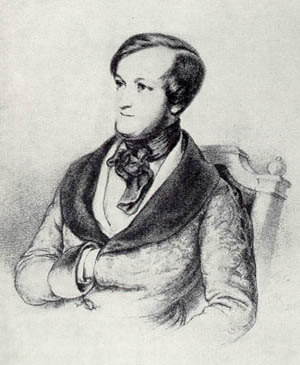Activity 1: Recite the Composition Information
- Recite the name of the composer and the composition.
Activity 2: Study the Music Timeline
Examine the music timeline to answer the following questions.
- What is the year of birth of the lesson composer?
- What is the year of death of the featured composer?
- How old was the composer upon death?
- Which composer (if any) directly precedes the studied composer by date of birth?
- Which composer (if any) directly succeeds the lesson composer by date of birth?
- Which other timeline composers were alive at the same time as the studied composer?
Activity 3: Map the Music
- Richard Wagner's opera, 'Die Meistersinger von Nürnberg,' is set in Nuremberg, Germany.
- Find the city of Nuremberg in the country of Germany.
Activity 4: Recite the Names of Richard Wagner's Operas
Here is a list of the operas by Richard Wagner, with their names pronounced. Recite each name aloud.
- The Fairies (1833).
- Das Liebesverbot (1836) leebes-fehr-bote.
- Rienzi (1842) ree-ent'-see.
- The Flying Dutchman (1842).
- Tannhäuser (1845) tan'-hoy-ser.
- Lohengrin (1847) lo'-en-green.
- Das Rheingold (1869) rhine-gold.
- Die Walküre (1870) dee val-kee-reh.
- Siegfried (1869) seeg'-freed.
- Tristan and Isolde (1865) e-sol'-deh.
- Die Meistersinger (1867).
- Die Götterdämmerung (1876) dee getter-day-meh-roongk.
- Parsifal (1882) par'-se-fal.
Activity 5: Write a One-Page Paper About Richard Wagner
Read these facts about Richard Wagner and write a one-page story out of them, using your own words.
- Richard Wagner wrote operas.
- He was born May 22nd, 1813.
- His operas, like the novels of Charles Dickens (A Christmas Carol, Oliver Twist, David Copperfield, etc.), are full of wonderful characters.
- Besides people of every day kind there are gods and goddesses, and giants, and other strange beings in his operas.
- As a boy Richard Wagner went to a classical school.
- He was always fond of music.
- He could translate Greek when he was only thirteen years old.
- Even as a little boy he said: I intend to become a poet.
- He wrote plays and he read the plays of Shakespeare in English.
- As a boy he studied the piano and was fond of the music of Von Weber.
- Among the books that Richard Wagner read as a boy were the story of Die Meistersinger and the story of Tannhäuser.
- He always kept these stories in mind.
- When he became a composer, he wrote an opera upon each of these stories.
- Tell something about Wagner and animals.
- Richard Wagner died at Venice, Italy on Feb. 13, 1883.
 12 Tremendous Composers
12 Composers
12 Tremendous Composers
12 Composers

 12 Tremendous Composers
12 Composers
12 Tremendous Composers
12 Composers

